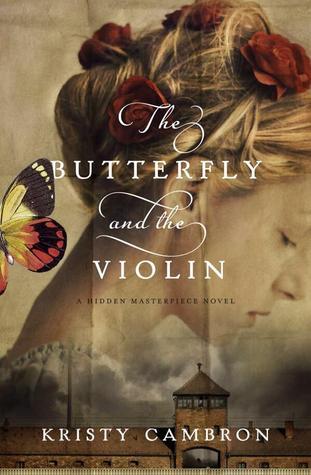 I really liked the historical story in this. The daughter of a prominent member of the Third Reich, an Austrian violinist—so good that the orchestra, which doesn’t allow females, invites her to play with them—is caught smuggling Jews out of the city and as a result is thrown into a camp: Auschwitz. In there, the key to her survival is to play music for the Nazis, at their functions, while they send people to the crematoriums, where and whenever they will it. Can’t play? You die. Get sick. You die.
I really liked the historical story in this. The daughter of a prominent member of the Third Reich, an Austrian violinist—so good that the orchestra, which doesn’t allow females, invites her to play with them—is caught smuggling Jews out of the city and as a result is thrown into a camp: Auschwitz. In there, the key to her survival is to play music for the Nazis, at their functions, while they send people to the crematoriums, where and whenever they will it. Can’t play? You die. Get sick. You die.She’s also been torn from her partner in “crime” and the man she loves. Is he dead? Is he in a camp?
And every day as she plays for the enemy, as others go to their deaths, as the atrocities against Jews around her worse or continue, Adele dies a little more inside.
In the present day, an art collector wants a painting of Adele. A rich man holds the key, but if they find the owner of the painting, he means to sue… There’s supposed to be a romance here, but I didn’t find it as passionate or interesting as the historical one. I didn’t care either way. This heroine didn’t hold much interest for me either. She disappointed me, didn’t even find the painting or seem to do much in that respect. The man did it all.
To be honest, while this was a decent read, I must confess I didn’t garner anything from it. I’ve read about all the atrocities and life in Auschwitz before. I also knew they had the prisoners play music. The only thing new to me was the revolt. I think what saved this book for me is Omara. She’s a strong character and shows great bravery. She somewhat steals the show. I kept reading for her and to find out what happened to Adele, while I began skimming the present-day story, which was too predictable and mundane for my tastes. For some reason I never became engrossed or invested in the present-day heroine.
Conclusion: I recommend this if you love double time-zone stories and perhaps haven’t already read 50 books about Auschwitz. It’s very well written, just not very unique. The romance between the modern hero and heroine carries over into book two--I read the blurb. I think I'll pass on it for it that very reason. I would have loved this book better if it cut out the modern story altogether and was solely about Adele and her cellist.


No comments:
Post a Comment